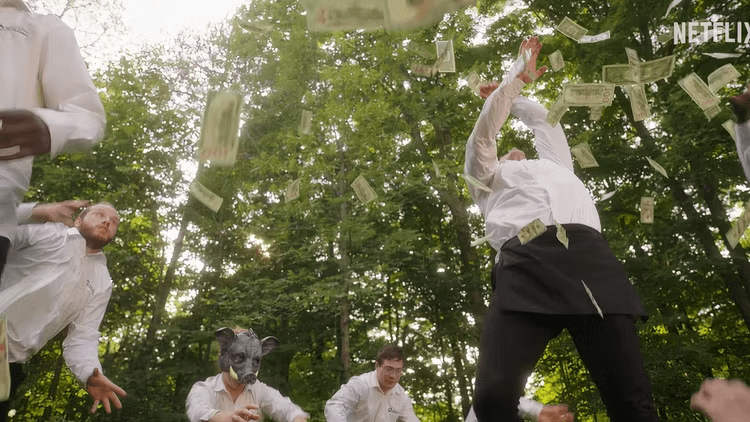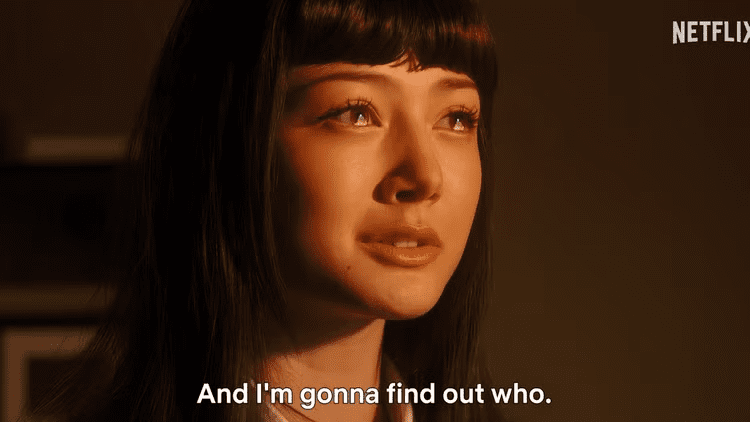The global community of anime and manga enthusiasts is currently buzzing with disappointment and frustration over the release of the live-action adaptation of Kakegurui, produced by Netflix. This adaptation has sparked significant controversy, not only regarding casting choices and character design that many deem to be “overly Westernized,” but also with the opening (OP) and ending (ED) themes of the film, which seem to ride the wave of audience sentiment rather than establish a unique tone.
Upon the initial reveal of the OP/ED music segments for the live-action Kakegurui, a “wave of disappointment” flooded social media. Instead of retaining the distinct spirit and style of the original anime’s music, which is known for its vibrancy and “electrifying” energy, Netflix opted for scores that were deemed “uninspired,” “lackluster,” and entirely unfit for the atmosphere of Kakegurui.
Many fans have not held back in expressing their deep disappointment. They feel that the OP/ED segments are crucial for cultivating the “soul” of an anime series, and Netflix’s failure to capture this important aspect has evidently diminished the original’s integrity and connection with its audience. Negative commentary proliferated, comparing the new music to the iconic OP/ED themes of the anime, leading to critiques that highlighted a “lack of creativity” and a failure to capture the essence of the live-action adaptation.
Kakegurui’s “Westernization”: Casting Choices and Character Design Spark Controversy
Alongside the music, the issue of casting and character design has emerged as a significant factor in the growing backlash. According to community feedback, many of the selected actors do not visually or stylistically align with the Japanese-inspired characters from Kakegurui.

Character hairstyles, costumes, and expressions have been altered significantly from the original designs, particularly the signature traits of the students at Hyakkaou Private Academy. Many fans have expressed that watching the live-action feels more akin to viewing a generic high school drama rather than a unique adaptation of Kakegurui, featuring intense gambling scenarios and distinctive personalities.
From Kakegurui to BET
Many fans are left questioning why the title Kakegurui had to be changed to BET, leaving some feeling disconnected. The original reason lies in the fact that Kakegurui had a previously aired live-action adaptation in Japan in 2018. This version adhered more closely to the manga and anime character designs while attempting to inject a sense of joyous escapism into the game-playing victories.

In contrast, BET has completely shifted the narrative by placing its characters in a typical American high school environment, where a Japanese exchange student suddenly emerges and disrupts the status quo with her gambling skills.

BET also alters character dynamics, changing the nature of Yumeko’s challenges against opponents in a way that feels detached from the original manga and anime, where her motivations were deeply tied to her gambling addiction and keen observational skills. While this change may enhance the dramatic narrative, it strays significantly from the essence of Yumeko as depicted in the anime and manga.
Has Netflix “stepped on the gas” too far?
This is not the first time Netflix has faced backlash from the anime fan community when adapting popular titles into live-action. Previous “failures” like the Death Note adaptation raised significant concerns regarding Netflix’s approach to Japanese intellectual properties.
The continued “Westernization” of Kakegurui risks undermining the core elements that define the original work, from music to visuals, increasingly eroding fans’ trust in Netflix’s ability to faithfully adapt anime. Many users have urged Netflix to honor the spirit of the original works and to listen more intently to audience feedback to avoid repeating mistakes in the future.
Adapting beloved works is not merely about reinterpreting the storyline; it is about capturing the “soul” and essence that made them successful in the first place. If Netflix fails to address these critical components and show greater respect for the original material, the live-action version of Kakegurui may end up becoming another “disaster” in the history of anime adaptations. The fan community continues to monitor these developments closely, hoping Netflix will adopt a more positive approach to enhance the situation.
Source: Screenrant





















